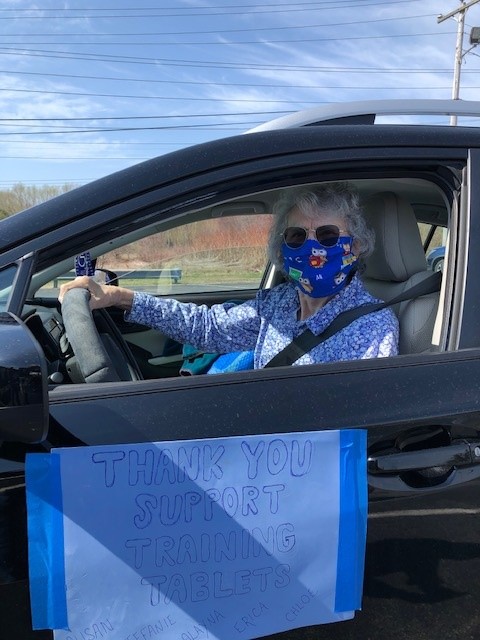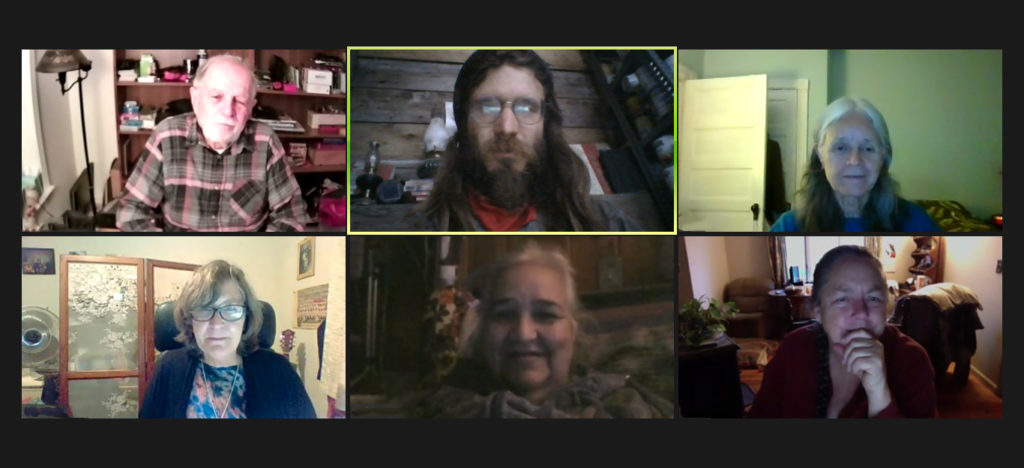This is the third in a series of four blog posts that we’re doing with partners at Good Shepherd Food Bank, give IT. get IT., The Opportunity Alliance, the National Digital Equity Center, and Maine Community Foundation to help highlight and deepen our understanding of the ways that our education, our elders, our health and food security are all affected by a lack of affordable, equitable access to internet in Maine communities.
“As an older adult we are advised to keep our minds sharp by trying to learn something new, like a language. This new technology world is like a new language,” shares Dianne, an 80-year old Mainer who, with help from the National Digital Equity Center, entered the technology world for the first time during the pandemic.

Dianne is one of hundreds of Maine’s older adults who has benefited from the National Digital Equity Center’s Affordable Equipment Program. When the pandemic hit, it was hard to ignore the depth of the digital divide in Maine. We worried about school children not having broadband access at home because it was not available or affordable; we worried about workers without the option to work from home for these same reasons; and at the National Digital Equity Center, we worried about the many older adults who were already isolated and lonely being left behind without a way to safely connect with the world. Could the use of technology help? Did our older adults have the resilience to brave this new-to-them world? The National Digital Equity Center (NDEC) believed they did.
NDEC quickly launched a program that offered free tablets with cell-connectivity to older adults. The program proved to be wildly successful. Suddenly, older, novice computer-users were learning how to Zoom with loved ones and health care providers, how to download books from their local libraries, how to use the internet safely and effectively, even how to access their favorite TV shows from their youth. Most importantly, the barriers to participating in a digital world fell away. Imagine the excitement when an older adult and their instructor connect via videoconferencing for the first time! And imagine the relief, connection, and pure joy when they finally lay eyes on their children and grandchildren for the first time in months.
Biddeford older adult Sandra told us about the impact her technology training had on her nursing-home bound husband during the pandemic. After weeks of daily phone calls, Sandra realized it wasn’t enough. “It was important for us to actually see each other and using Zoom was more effective than I expected. Right away, I noticed a change in his mood when he started to Zoom with me, our son, and our grandson. Without access to a device and internet, we would have missed out on so much.”
NDEC’s program spurred partnerships and collaborations across the state. Organizations like The Opportunity Alliance, Southern Maine Agency on Aging, the University of New England’s GWEP program, and many others worked closely with the National Digital Equity Center’s team to reduce the barriers to learning and accessing technology. NDEC instructors tirelessly provided one-on-one tutoring in a gentle, caring way, with incredible support from its partners.
“The tablet has provided much more than digital training,” explained Dianne. “It has meant classes to look forward to, learning new things, and meaningful activities instead of empty days that all seem the same. The tablet has provided more than I ever could have expected.”
We can’t fix all of the challenges brought on by the pandemic, but we can make a difference for older Mainers that would like to learn this new, ever-changing, digital world. If we have learned anything in the past year, it is that the desire to learn and connect will always, always win.

This guest post was provided by Susan Corbett, director of the National Digital Equity Center, and Chloe Gray, technology and volunteer coordinator for The Opportunity Alliance’s Foster Grandparent and Senior Companion programs.

